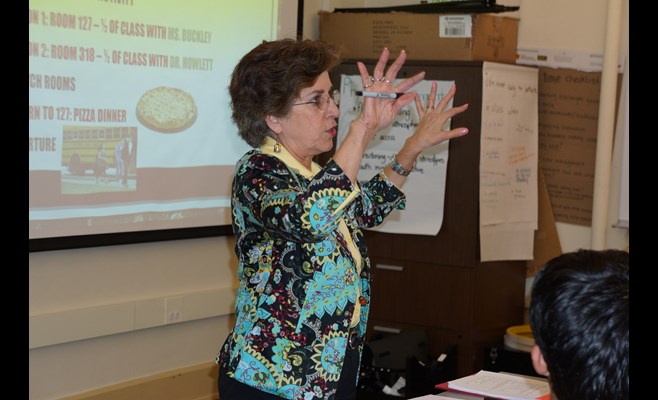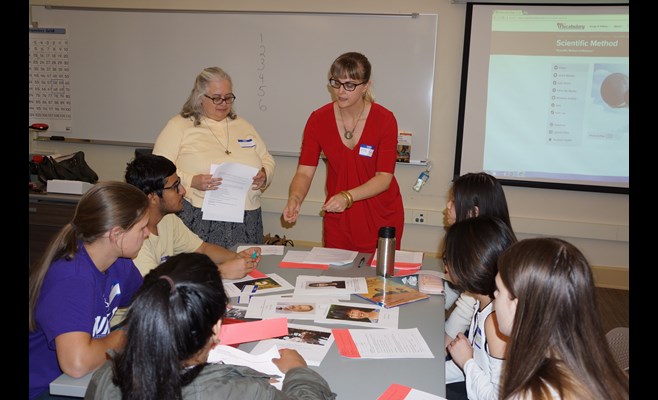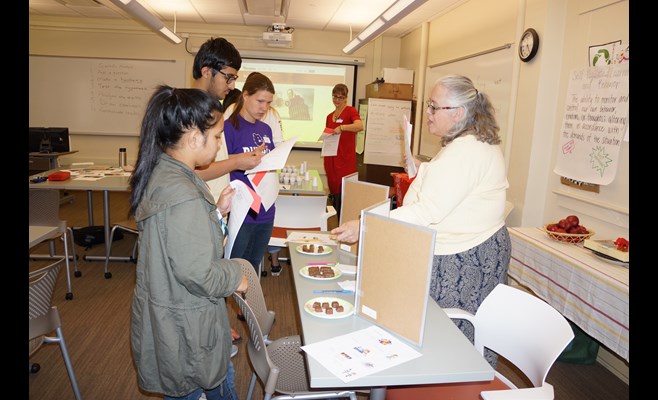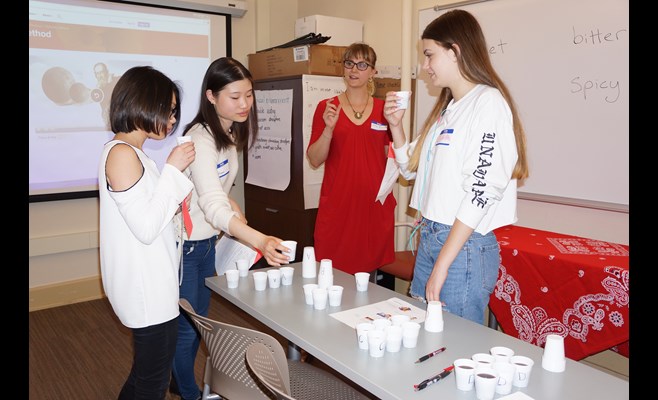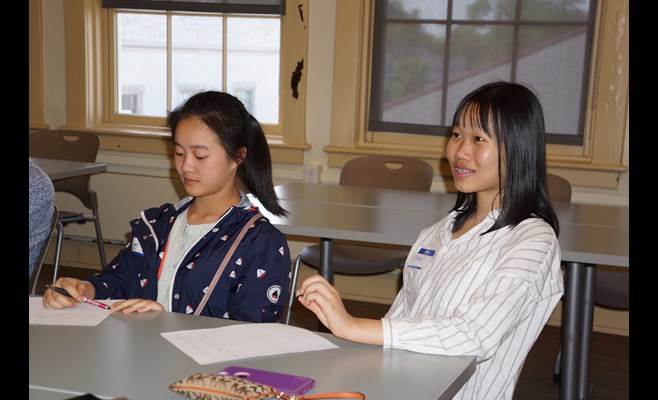
Arabic, Chinese, German, Japanese, Latvian, Spanish and Vietnamese are native languages spoken by high school students who visited the University of Arkansas campus on May 2. The teens came for lessons on the scientific method and Pakistani culture presented by U of A graduate students in the program called teaching English to speakers of other languages.
“I want my students to have actual experiences working with students who speak other languages,” said Tina Howlett, assistant professor of TESOL in the College of Education and Health Professions, who arranged the practicum field trip. “We also wanted to tie in the kids’ cultural backgrounds so the lesson was meaningful to them.”
Howlett joined the U of A faculty last year after 16 years as ESOL (English for speakers of other languages) curriculum specialist for the Rogers, Arkansas, Public Schools. During those years, Howlett forged connections with other programs in the area and knew she could draw on those to benefit her graduate students. Teacher Kelly Buckley brought her group of 11 students from Fayetteville High School for the campus visit.
Rachel Gerner was one of the four TESOL students who designed a lesson about the scientific method for the teens. She and Therese Moreno began by telling the students about accomplished scientists from their own countries. They then used a video and rap song to explain steps in the scientific method of testing hypotheses.
“I loved the opportunity to use the best practices of both theory and methods in an authentic teaching situation,” Gerner said. “I was thrilled to see the students enthusiastically participate and engage in the content.”
The art of teaching involves planning a lesson that accommodates multiple levels of proficiency and learning styles and responding to students during the lesson, Gerner said. That allows the teacher to reflect on what went well and what could be improved based on the students’ feedback about what was effective.
“I think the best learning can be accomplished in the place where theory and practice overlap; we were able to experience that on Tuesday night,” Gerner said.
Gerner is about to finish her master’s degree while Moreno is in early days. Moreno’s experience differed from Gerner’s.
“While constructing a lesson plan that meets all the state and Common Core standards for ELL students can take some creativity and understanding of the student’s needs, the reality of carrying out the lesson is difficult,” Moreno said. “The students we taught were at different levels in their English language development.”
She found it difficult to meet the needs of all students because of the mix of both higher- and lower-functioning language levels.
“I wanted to reach both types of students at their level but I discovered that I could not,” Moreno said. “It was frustrating, yet a great learning experience.”
Regardless, the students enjoyed the trip that ended with a pizza dinner in Peabody Hall.
Howlett plans for this class to be the first that students in the master’s program take from now on. She also believes it’s valuable for the high school students to visit the university campus so that they become comfortable with the environment.
Topics
Contacts
Heidi Wells, content writer and strategist
Global Campus
479-879-8760,
